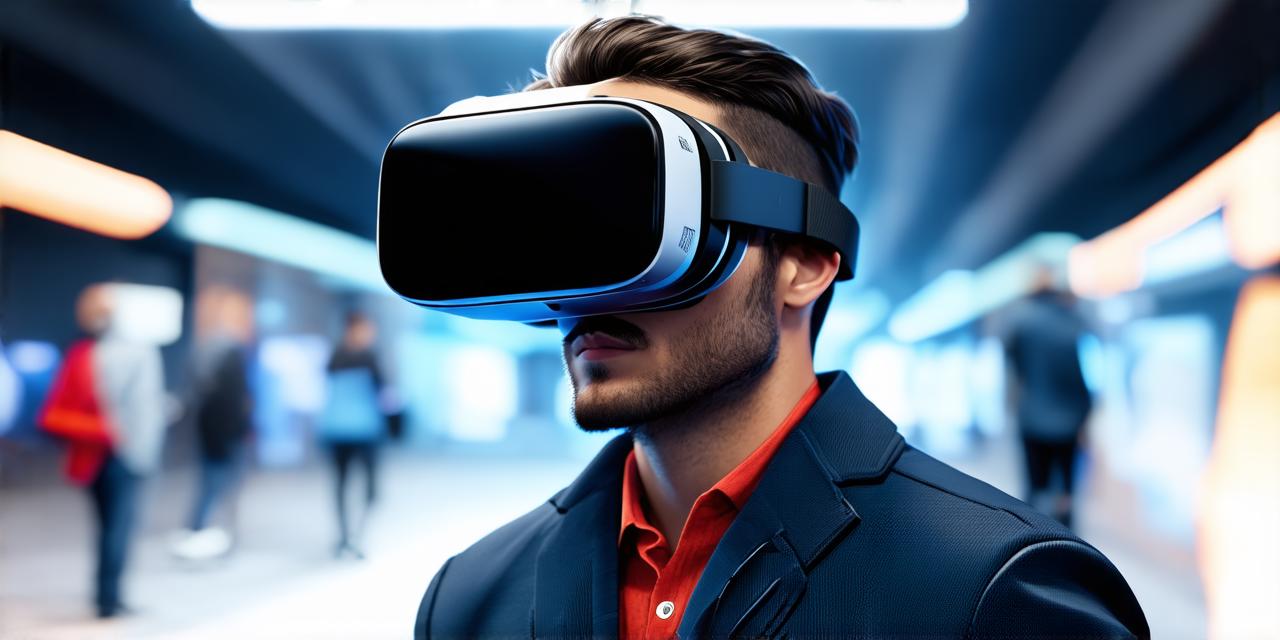Virtual reality (VR) technology is revolutionizing the way we experience and interact with digital content. VR apps offer immersive experiences that engage users and provide them with new ways to learn, explore, and play. In this article, we will examine how virtual reality apps provide a boost by discussing their benefits and showcasing some real-life examples of their successful use.
Benefits of Virtual Reality Apps
Virtual reality apps offer many benefits that make them attractive to users and businesses alike. Some of these benefits include:
- Immersive experiences
Virtual reality apps provide immersive experiences that engage users and transport them to new and exciting environments. This makes VR apps ideal for entertainment, education, and training applications.2. Enhanced learning
Virtual reality apps can provide enhanced learning experiences by creating interactive and engaging environments that allow users to learn through hands-on exploration and experimentation.
- Improved performance
Virtual reality apps can be used for training and simulation purposes, allowing users to practice and improve their skills in a safe and controlled environment.4. Cost savings
Virtual reality apps can save businesses money by reducing the need for physical equipment and facilities, as well as the cost of travel and training.
5. Increased engagement
Virtual reality apps can increase engagement by providing users with a unique and memorable experience that they are likely to share with others.
Real-Life Examples of Virtual Reality Apps
There are many examples of virtual reality apps that have successfully utilized the benefits outlined above. Here are some real-life examples:
- Google Expeditions
Google Expeditions is a VR app that allows users to take virtual field trips to various locations around the world. The app provides an immersive experience that allows users to explore different cultures and environments from the comfort of their own homes.2. Tilt Brush
Tilt Brush is a VR app that allows users to create and manipulate 3D objects in virtual reality. The app has been used for everything from creating digital art to designing furniture and architectural models.
3. Virtual Patient Care
Virtual patient care apps allow medical professionals to simulate patient scenarios in a controlled environment, allowing them to practice their skills and improve their performance. This can lead to better patient outcomes and reduced healthcare costs.
4. Aurasma
Aurasma is an AR app that allows users to augment reality by adding digital elements to the physical world. The app has been used in marketing campaigns, education, and entertainment applications.
How Virtual Reality Apps Provide a Boost: Case Studies
Virtual reality apps have already proven their ability to provide a boost in various industries. Here are some case studies that illustrate the benefits of virtual reality apps:
- Tourism
The tourism industry has been one of the early adopters of virtual reality technology. Virtual reality apps like Google Expeditions allow users to take virtual field trips to different locations around the world, providing an immersive experience that can be shared with others. This can lead to increased engagement and bookings for tour operators.2. Training and Simulation
Virtual reality apps have been used for training and simulation purposes in a variety of industries. For example, virtual patient care apps allow medical professionals to simulate patient scenarios in a controlled environment, allowing them to practice their skills and improve their performance. This can lead to better patient outcomes and reduced healthcare costs.
3. Education
Virtual reality apps have the potential to revolutionize education by providing immersive learning experiences that engage students and enhance their understanding of complex concepts. For example, Tilt Brush has been used for digital art and design education, while virtual field trips can be used to teach geography and history.
How Virtual Reality Apps Provide a Boost: Expert Opinions
To gain further insights into how virtual reality apps provide a boost, we spoke with experts in the field. Here are some of their opinions:
- Mark Schenker, VP of Marketing at Aurasma
"Virtual reality apps have the power to transform the way we experience and interact with digital content. By providing immersive experiences that engage users and enhance learning, virtual reality apps can provide a boost in various industries, from tourism to education."2. Dr. James M. Donnelly Jr., Professor of Medicine at Stanford University
"Virtual patient care apps have the potential to revolutionize medical training and simulation by providing a safe and controlled environment for practicing skills and improving performance. This can lead to better patient outcomes and reduced healthcare costs."
3. Dr. Richard L. Goldberg, CEO and Co-founder of Virtual Reality Medical Center
"Virtual reality apps have the potential to transform medical education by providing immersive learning experiences that engage students and enhance their understanding of complex concepts. By simulating real-world scenarios, virtual reality apps can provide a safe and controlled environment for practicing skills and improving performance."
How Virtual Reality Apps Provide a Boost: Research and Experiments
Several studies have been conducted to investigate the effectiveness of virtual reality apps in various industries. Here are some key findings:
- Tourism
A study by the European Travel Commission found that virtual reality apps can increase engagement and bookings for tour operators. The study also found that virtual reality apps can provide a cost-effective way to promote destinations and attract new customers.2. Training and Simulation
A study by the University of California, Irvine found that virtual patient care apps can improve medical training and simulation by providing a safe and controlled environment for practicing skills and improving performance. The study also found that virtual patient care apps can lead to better patient outcomes and reduced healthcare costs.
3. Education
A study by the University of Maryland found that virtual reality apps can enhance learning by providing immersive experiences that engage students and enhance their understanding of complex concepts. The study also found
